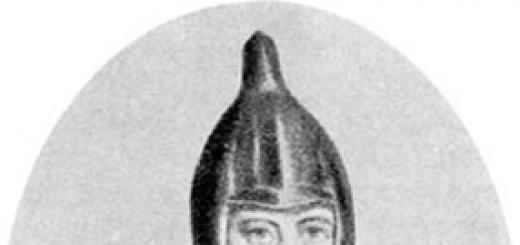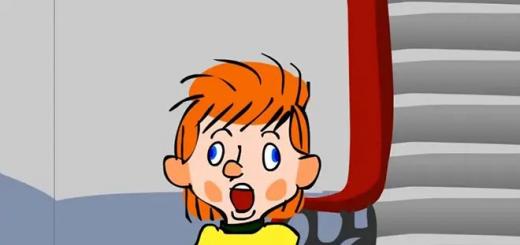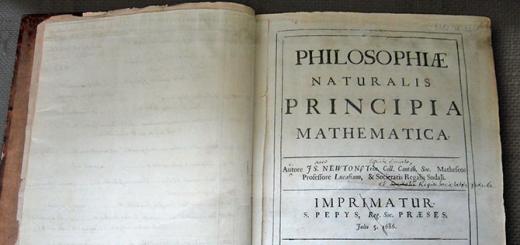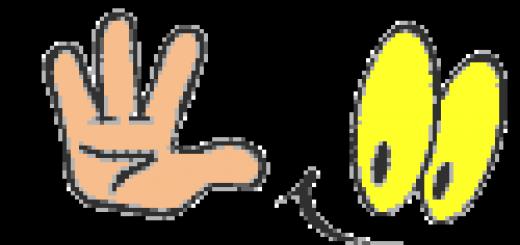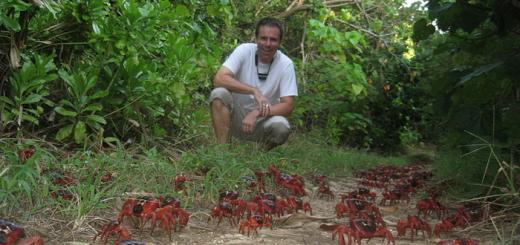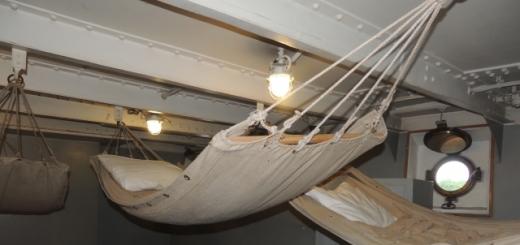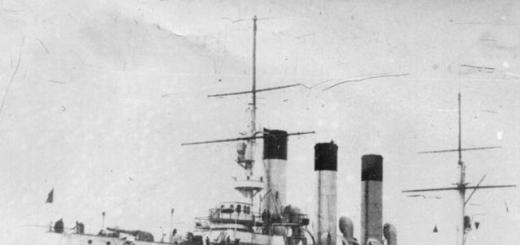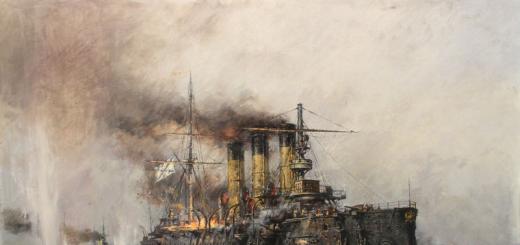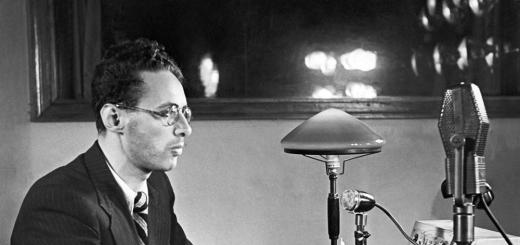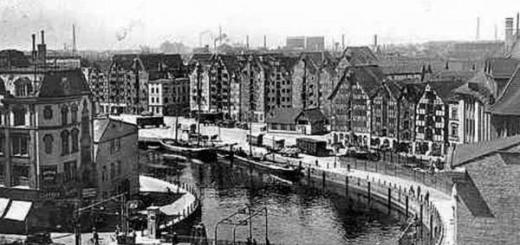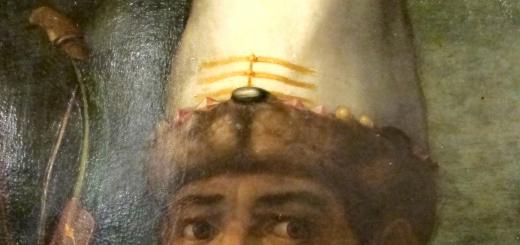History test Ancient Greece for 5th grade students with answers. The test includes 2 options, each option consists of 10 tasks.
1 option
1.
Myths are an important source of information about the ancient history of Greece.
1) true
2) wrong
2. Themistocles was a contemporary
1) Solon
2) Miltiada
3) Demosthenes
3. Find and indicate the number of the item that is superfluous in the list. Participants and heroes of the Trojan War
1) Achilles
2) Hector
3) Pericles
4) Agamemnon
4. Arrange the following events in chronological order. Write the letters of the events in the correct order.
A) the rise of Mycenae
B) the battle of Plataea
C) the rise of democracy in Athens
D) Solon's laws
D) Macedonian conquest of Persia
5. Establish a correspondence between concepts and their meanings. Write in the table the selected numbers under the corresponding letters.
A) trieres
B) archons
B) amphorae
D) helots
Meaning
1) earthenware vessels with two handles for storing wine and oil
2) Greek warships
3) state slaves in Sparta
4) elected rulers in Athens during the time of Solon
6. Educational institutions in Athens (continue to list)
1) school
2) __________
3) __________
7. Agora, Keramik, Acropolis are
1) famous monuments in Athens
2) districts of Athens
3) monuments in Sparta
8. Find and indicate the number of the battle that is superfluous in the list. Major Battles of the Greco-Persian Wars
1) Battle of Marathon
2) Battle of Thermopylae
3) the battle of Chaeronea
4) Battle of Plataea
5) Battle of Salamis
9.
Solon carried out very important transformations. He demolished debt stones, abolished debt slavery, returned freedom to debtor slaves. He established that all the inhabitants of Athens, regardless of their origin and property status, could be elected judges.
1) in fact, Solon, forbidding enslavement for debts, did not give freedom to those debtors who had become slaves earlier
2) in fact, Solon established that only Athenians who owned certain property could be elected judges
3) in fact, Solon established that all citizens of Athens can be elected judges
10. Read the text and fill in the gaps with the correct words. Greek history and myths have enriched our speech with many beautiful expressions. We call cruel laws __________, the cause of quarrels and strife - __________, a complex, confusing question - __________.
Option 2
1. Is the following statement true?
The ancient history of Greece is reflected in the myths about Theseus and the Minotaur, Daedalus and Icarus, about the Trojan War.
1) true
2) wrong
2. Pericles was a contemporary
1) Themistocles
2) Herodotus
3) Diogenes
3. Find and indicate the number of the item that is superfluous in the list. Participants and heroes of Homer's poem "The Odyssey"
1) Polyphemus
2) Penelope
3) Sophocles
4) Alkina
5) Nausicaa
4. Arrange the following events in chronological order. Write the letters of the events in the correct order.
A) the first Olympic Games
B) Marathon battle
C) the introduction of payment for the performance of elected offices in Athens
D) the abolition of debt slavery in Athens
D) the battle of Gaugamela
5. Establish a correspondence between concepts and their meanings. Write in the table the selected numbers under the corresponding letters.
A) pithos
B) colonies
B) phalanx
D) areopagus
Meaning
1) the battle formation of the Greeks and Macedonians
2) a large clay vessel for storing grain
3) the council of the nobility in Athens
4) independent states founded by the Greeks along the coast of the Mediterranean and Black Seas
6. The theater building included (continue the list)
1) seats for spectators
2) __________
3) __________
7. Judge, tax collector, market keeper
1) these are officials in Athens, appointed by the strategist
2) these are officials in Athens, elected by lot
3) these are officials in Athens, elected by the People's Assembly
8. Find and indicate the number of the battle that is superfluous in the list. Battles in which Alexander commanded the Macedonian army
1) the battle of Issus
2) the battle of the Granicus
3) the battle of Chaeronea
4) Battle of Gaugamela
5) battle in the Indus Valley
9. Read the text and find the error in it.
The popular assembly in Athens during the reign of Pericles had the highest power. It chose the first strategist, declared war, approved peace treaties, adopted laws, disposed of the treasury. Decisions were made by a show of hands.
1) in fact, the first strategist had the highest power in Athens
2) in fact, the right to declare war and conclude peace treaties belonged to the first strategist
3) in fact, the first strategist was elected by a show of hands, on other issues decisions were made by filing white and black pebbles
10. Read the text and fill in the gaps with the correct words. Greek history and myths have enriched our speech with many beautiful expressions. We call a neglected situation that is very difficult to fix __________ , angry diatribes __________ , and the biggest sports competitions __________.
Answers to the test on the history of Ancient Greece
1 option
1-1
2-2
3-3
4-AGBVD
5-2413
6.
palaestra
gymnasium
7-2
8-3
9-3
10.
draconian
bone of contention
Gordian knot
Option 2
1-1
2-2
3-3
4-AGBVD
5-2413
6.
orchestra
skene
7-2
8-3
9-3
10.
Augean stables
Philippics
Olympic Games
The original question that led to the creation of the theory of resilience was "what psychological factors contribute to successful coping with stress and reducing (or even preventing) internal tension?". It was suggested that this factor is what was later called resilience - a kind of existential courage that allows the individual to be less dependent on situational experiences, to overcome the constant basic anxiety that is actualized in a situation of uncertainty and the need for choice. Hardiness is a system of beliefs about oneself, about the world, about relationships with the world. This is a disposition that includes three relatively autonomous components: involvement, control, risk taking. The severity of these components and hardiness in general prevents the emergence of internal tension in stressful situations due to persistent coping (hardy coping) with stresses and perceiving them as less significant. Engagement (commitment) is defined as "the conviction that involvement in what is happening gives the maximum chance to find something worthwhile and interesting for the individual." A person with a developed component of involvement enjoys his own activities. In contrast, the absence of such a conviction creates a sense of rejection, a feeling of being “outside” of life. “If you feel confident in yourself and that the world is generous, you are inherently engaged.” Control (control) is the belief that the struggle allows you to influence the outcome of what is happening, even if this influence is not absolute and success is not guaranteed. The opposite of this is the feeling of helplessness. A person with a highly developed component of control feels that he chooses his own activity, his own path. Risk acceptance (challenge) - the conviction of a person that everything that happens to him contributes to his development through knowledge derived from experience, no matter positive or negative. A person who considers life as a way of gaining experience is ready to act in the absence of reliable guarantees of success, at his own peril and risk, considering the desire for simple comfort and security to impoverish the life of an individual. Risk taking is based on the idea of development through the active assimilation of knowledge from experience and their subsequent use. Thus, resilience is a personal characteristic that is formed in childhood and adolescence, although theoretically its development is possible at a later age. Muddy warns that resilience should not be confused with related concepts such as optimism, connectedness, self-efficacy, resilience, religiosity, and so on.
Option 1
The king of the island of Crete, according to myths, was:
a) Minotaur b) Theseus c) Minos d) Aegeus
The Greek god of blacksmithing was:
a) Apollo b) Hermes c) Dionysus d) Hephaestus
The laws that laid the foundations of democracy in Athens were established by
a) Solon b) Drakon c) Pericles d) Isocrates
The main square of Athens was called:
a) Pottery b) Agora c) Acropolis d) Forum
Which of the following could have been the cause of Greek colonization?
1) ABE 2) IOP 3) AVD 4) AGE
A) Lack of good land in Greece D) struggle between the demos and the aristocracy
B) The Persian invasion of Greece D) The conquest of Greece by the king of Macedonia
C) Hosting the Olympic Games E) Threat of starvation
"CATCH THE DATE"
A) Battle of Chaeronea 1) 443 BC e.
B) The first Olympic Games 2) 338 BC. e.
C) Solominsk naval battle 3) 594 BC e.
D) The election of Pericles as the first strategist 4) 776 BC. e.
E) Solon's reforms 5) 480 BC. e.
"PERSONALITY IN HISTORY"
2) created the laws that laid the foundation for democracy in Athens
B) Miltiades
D) Xerxes
4) a strategist who led the Greeks in the Battle of Marathon
D) Sophocles
5) the king of the Persian state
"Terms"
Write terms:
People power - __________________________________________________
The main market square in Athens-________________________________
A person with rights and obligations - ____________________________
"Accompanying child" - _______________________________________
Closed formation of warriors - _________________________________
15 -9 - mark "3";
17-16 - mark "4";
20 - 18 - mark "5";
0 - 8 - mark "2";
FINAL TEST ON THE TOPIC "ANCIENT GREECE"
Option 2
Circle the number of the correct answer. For each correct answer 1 point. The maximum amount you can earn in this stage is 5 points
The leader in the Trojan War was:
a) Agamemnon b) Odysseus c) Hector d) Achilles
The independent Greek states were called:
a) Polis b) Republic c) Colony d) City
The Greek leader at the Battle of Thermopylae was:
a) Miltiades b) Leonidas c) Themistocles d) Demosthenes
Who is the famous Parthenon temple dedicated to?
a) Aphrodite b) Athena c) Poseidon
Which of the following events refers to the time of the campaign of Alexander the Great to the East?
1) ABD 2) BDE 3) BVE 4) IOP
A) the battle of Chaeronea D) the battle of Marathon
B) the battle of Gaugamela D) the construction of the Pharos lighthouse
C) the foundation of Alexandria of Egypt E) the burning of Persepolis
"CATCH THE DATE"
Match dates and events. Record the resulting sequence of numbers in a table. (5 points)
A) The election of Solon as archon in Athens 1) 490 BC. e.
B) The first Olympic Games 2) 1200 BC. e.
C) Battle on the river Granik 3) 594 BC e.
D) Battle of Marathon 4) 776 BC e.
E) The beginning of the Trojan War 5) 334 BC. e.
"PERSONALITY IN HISTORY"
Match the name of the historical figure and his contribution to the history of Greece. Record the resulting sequence of numbers in a table. (5 points)
B) Herodotus
2) Athenian strategist, introduced payment for the performance of elected positions
3) the "father of history", who wrote 9 volumes on the history of Greece
D) Philip
4) the ingenious sculptor who created the statue of Athena
D) Aristophanes
5) the king of the Macedonian kingdom
"TERMS" (5 points)
Write terms:
A person who can speak
"Place for spectacles" - ______________________________________________
Rulers in Athens, there were 9 of them - __________________________________
Hill in Athens, where Ch. temples of the city - ___________________
City-state in Ancient Greece - ____________________________
The scale for converting primary scores into a school mark: 15 -9 - mark "3";
17-16 - mark "4";
20 - 18 - mark "5";
Option number 1
1. On the slopes of the mountains, the ancient Greeks grew:
1) grapes and olives; 2) dates and figs; 3) rice and tea; 4) wheat and barley.
2. How did the inhabitants of ancient Greece call themselves:
1) Greeks; 2) Hellenes; 3) labels; 4) Thracians.
3. The culprit of unleashing the Trojan War, according to Homer's poem "The Iliad", was the son of King Priam:
1) Patroclus; 2) Hector; 3) Paris; 4) Telemac.
4. Insert missing hero name:
Taking his bow, _________ instantly pulled the string. In his house he destroyed all the suitors here
riotous, taking revenge on them for all their iniquities and for all insults.
1) Telemac; 2) Odysseus; 3) Achilles; 4) Paris.
5. In what degree of relationship are Poseidon, Zeus, Hades.
1) siblings; 2) godfather; 3) cousins; 4) father and sons.
6. In what year did the first Olympic Games take place?
1) 520g. BC.; 2) 776 BC.; 3) 920g. BC.; 4) 677 BC.
7. Who in ancient Greece was forbidden to engage in trade and crafts?
8. To solve the most important state affairs in the Athenian policy, they began to convene ..., in which
all free Athenians (citizens) participated.
1) veche; 2) the people's assembly; 3) meeting; 4) fees.
9. What goddess was called "warrior":
1) Aphrodite; 2) Athena; 3) Hera; 4) Demeter.
10. What was the name of the god of war in Greece:
1) Ares; 2) Hephaestus; 3) Hermes; 4) Dionysus.
11. Determine the date of the Battle of Marathon.
1) 480 BC; 2) 443 BC; 3) 490 BC; 4) 479 BC
12. The place for the construction of temples in Athens was called:
1) acropolis; 2) agora; 3) ceramics; 4) forum.
13. Find definitions of the concept "power of the people".
1) paganism; 2) republic; 3) democracy; 4) monarchy.
14. Famous ancient Greek historian, friend of Pericles and "Father of history":
1) Phidias; 2) Herodotus; 3) Socrates; 4) Homer.
15. Trier is:
1) a training ground; 2) light maneuverable ship of the Greeks;
3) school for wrestling; 4) the form of construction of the Macedonian soldiers.
16. Near which island was the Persian fleet defeated?
1) about. Crete; 2) about. Salamis; 3) about. Knossos; 4) about. Ithaca.
17. In his laws, Archon Solon ordered:
1) Give bread to slaves; 2) Declare Eternal Peace 3) Abolish debt slavery 4) Start a war with
Sparta
18. Which of the first strategists held this position in Athens for 15 years?
1) Themistocles; 2) Pericles; 3) Solon; 4) Dragon.
19. Who was not allowed to the Olympic Games even as a spectator?
1) slaves; 2) demos; 3) women; 4) foreigners.

Control test on the topic "Ancient Greece". 5th grade
Option number 2
A. The main means of communication between the regions of Greece were overland routes.
B. One of the main products for which Greece was famous was olive oil.
1. Are the following statements true:
1) only A is true; 2) only B is true; 3) both statements are true; 4) both statements are wrong.
2. What event formed the basis of Homer's poem "The Odyssey"?
1) the return of King Odysseus to Ithaca; 2) the death of the Trojan hero Hector;
3) the abduction of Elena the Beautiful by Paris; 4) the death of Achilles.
3. The leader of the Greek campaign against Troy was the king of Mycenae:
1) Odysseus; 2) Agamemnon; 3) Achilles; 4) Menelaus.
4. Who in ancient Greece was forbidden to engage in trade and crafts?
1) the Spartans; 2) Macedonians; 3) the Athenians; 4) the Cretans.
5. What was the name of the ancient Greek goddess of love and beauty:
1) Artemis; 2) Demeter; 3) Athena; 4) Aphrodite.
6. What god did the Greeks depict with a trident in their hands:
1) Zeus; 2) Poseidon; 3) Aida; 4) Apollo.
7. After what period of time were the Olympic Games held?
1) after 4 years; 2) after 5 years; 3) after 6 years; 4) after 10 years.
8. Which of the Hellenes performed a heroic deed in the defense of Thermopylae?
1) Leonid; 2) Themistocles; 3) Pericles; 4) Miltiades.
9. What god was called "thunderer":
1) Ares; 2) Hermes; 3) Poseidon; 4) Zeus.
10. What were the slaves called in Sparta:
1) Helots; 2) Citizens; 3) Meteki; 4) Archons
11. Determine the date of the Battle of Salamis.
1) 1480 AD; 2) 443 AD; 3) 480 AD; 4) 490 BC
12. The marketplace in Athens was called:
1) forum; 2) agora; 3) ceramics 4) acropolis.
13. What is a "policy"?
1) an independent state; 2) the edge of the earth; 3) district of the city; 4) occupied territory.
14. Famous Greek sculptor, author of the statue of Athena:
1) Phidias; 2) Homer; 3) Kalikrat; 5) Miron.
15. Palestra is:
1) a training ground; 2) place of studies;
3) school for wrestling; 4) gym.
16. What was the name of the council of the nobility and 9 of its rulers in the Athenian policy?
1) Dragon and rulers; 2) Areopagus and archons; 3) Court and judges; 4) Strategist and citizens.
17. Which of the following seas washes Greece?
1) Black Sea; 2) Red Sea; 3) Sea of Marmara; 4) Ionian Sea.
18. Triangular space between two roof slopes and a cornice:
1) Column; 2) Portico; 3) Fronton; 4) Basilica.
19. What was the fate of a weak newborn in Sparta?
1) he was thrown into the abyss; 2) he was treated and fattened; 3) it was sold to other countries;
4) they left him in the forest.
20. List what was included in the pentathlon at the Olympic Games.
Final history test for 5th graders
on the topic "Ancient Greece".
The test is intended for 5th grade students. The test can be used based on the results of studying the section "Ancient Greece" of the textbook on the history of the Ancient World by A.A. Vigasina, G.I. Godera, I.S. Svintsitskaya. The test consists of two options, in each option there are 15 tasks, tasks from 1-11.15 with a choice of answers, task 12 to establish a chronological sequence, tasks 13-14 to establish correspondence.
Tasks s1-11, 15 are scored 1 point, tasks 12,13,14 no errors 2 points, one error 1 point, two errors 0 points.
Evaluation criteria:
21-19 points- grade " 5";
18-16 points- grade "four";
15-13 points- grade "3";
Less 13 score score "2".
"ANCIENT GREECE". Option 1.
1. In the east, Greece is washed by:
BUT) ionian sea B) Mediterranean Sea
AT) the Aegean sea G) Red sea
2. Central Greece connects with Southern Greece:
BUT) Thermopylae Pass B) Isthmus of Corinth
AT) Gulf of Corinth G) Hellespont
3. Archon who laid the foundations of democracy in Athens:
BUT) Pericles B) Solon AT) Themistocles G) Dracont
4. The Persian king who led the second campaign against Greece in 480 BC:
BUT) Xerxes B) Darius I AT) Cyrus the Great G) Darius III
5. Where is Sparta?
BUT) B) in Attica
AT) in Laconia G) on the island of Pharos
6. What did traders bring into Greece from other countries?
BUT) wine B) wheat AT) weapon G) olive oil
BUT) Aeschylus B) Sophocles AT) Herodotus G) Homer
8. The main god of the ancient Greeks, the patron of gods and people?
BUT) Hades B) Zeus AT) Poseidon G) Ares
9. Which temple in the city of Athens is dedicated to the goddess Athena?
BUT) Erechtheion B) Propylaea AT) Parthenon G) Caryatids
10. In what city of the Mediterranean was the largest library, numbering up to 700 thousand papyrus scrolls?
BUT) in Athens B) in Alexandria of Egypt
AT) in Pergamon G) in Sparta
BUT) Sophocles B) Aeschylus AT) Aristophanes G) Homer
12. Arrange events in chronological order:
BUT) Death of Alexander the Great
B) Marathon battle
AT) Battle of Gaugamela
G) Trojan War
BUT) Areopagus 1) the power of the best
B) Agora 2) elevated, fortified place
AT) Aristocracy 3) pottery area
G) Acropolis 4 ) advice to know
D) Ceramic 5) main square
BUT) Aristotle 1) Participant of the Battle of Thermopylae
B) Philip II 2) king of persia
AT) Darius III 3) scientist, teacher of Alexander the Great
G) king Leonidas 4) king of Macedonia
BUT) Aristotle and Philip II B) Homer and Phidias
AT) Darius I and Alexander the Great G) Pericles and Solon
"ANCIENT GREECE". Option 2.
1. Northern Greece connects with Central Greece:
BUT) Thermopylae Pass B) Isthmus of Corinth
AT) Gulf of Corinth G) Hellespont
2. In the west, Greece is washed by:
BUT) ionian sea B) Mediterranean Sea
AT) the Aegean sea G) Red sea
3. Statesman of Athens, elected fifteen times to the post of first strategist:
BUT) Pericles B) Solon AT) Themistocles G) Dracont
4. The Persian king who led the first campaign against Greece in 490 BC:
BUT) Philip II B) Darius I AT) Cyrus the Great G) Darius III
5. Where is Athens located?
BUT) in the north of the Balkan Peninsula B) in Attica
AT) in Laconia G) on the island of Pharos
6. What did merchants export from Greece to other countries?
BUT) slaves B) bread AT) olive oil G) wood
BUT) Aeschylus B) Sophocles AT) Homer G) Themistocles
8. In honor of which Olympian god were theatrical performances staged?
BUT) Zeus B) Poseidon AT) Apollo G) Dionysus
9. Which temple of Athens is dedicated to Poseidon and Athena?
BUT) Erechtheion B) Propylaea AT) Parthenon G) Caryatids
10. A slave accompanying a child is:
BUT) metec B) helot AT) strategist G) teacher
BUT) Sophocles B) Aeschylus AT) Aristophanes G) Euripides
12. Arrange the events in chronological order:
BUT) Battle of Salamis
B) First Olympic Games
AT) Founding of Alexandria of Egypt
G) Battle of Chaeronea
13. Establish a correspondence between the term and the definition:
BUT) Palestra 1) school for adults
B) Skene 2) the place where the muses live
AT) gymnasium 3) stage for actors
G) Mouseyon 4) storage space for costumes and props
D) Orchestra 5) gymnastics school
14. Establish a correspondence between the historical figure and his activities:
BUT) Phidias 1) commander, king of Macedonia
B) Xerxes 2) creator of the Greek fleet, strategist
AT) Alexander the Great 3) sculptor
G) Themistocles 4) king of persia
15. Which of the following historical figures were contemporaries?
BUT) Darius III and Miltiades B) Xerxes and Alexander the Great
AT) Phidias and Pericles G) Homer and Aristotle
Answers:
Option 1.
1 - in; 2 - b; 3 - b; 4 - a; 6 - b; 7 - g; 8 - b; 9 - in; 10 - b; 11 - a; 12 - gbva;
13 - 4a, 5b, 1c, 2d, 3d; 14 - 3a, 4b, 2c, 1d; 15 - a.
Option 2.
1 - a; 2 - a; 3 - a; 4 - b; 5 B; 6 - in; 7 - in; 8 - g; 9 - a; 10 - g; 11 - in; 12 - bug;
13 - 5a, 4b, 1c, 2d, 3d; 14 - 3a, 4b, 1c, 2d; 15 - c.
